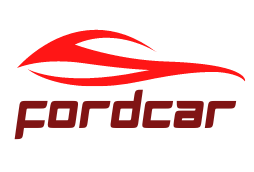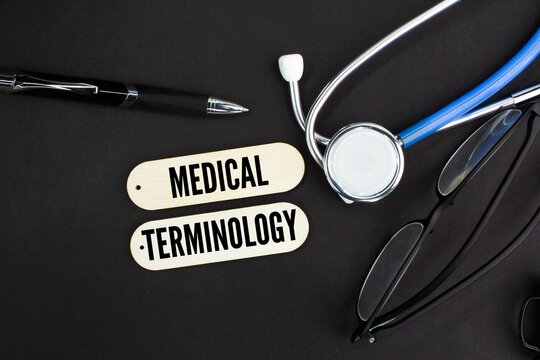The Importance of Medical Terminology in Healthcare
Medical terminology plays a crucial role in healthcare communication, promoting accuracy, safety, and efficiency in patient care while facilitating global collaboration and advancing medical science. It serves as the universal language that allows healthcare professionals to communicate effectively and accurately, ensuring better patient outcomes. In this article, we will explore the role of medical terminology in healthcare, when it is used, who needs to understand it, examples of medical terminology, and how to improve your medical terminology skills.
The Role of Medical Terminology in Healthcare

Medical terminology consists of official terms and abbreviations that describe anatomy, bodily functions, diseases, diagnoses, treatments, procedures, and more. It serves as a standardized language that enables healthcare professionals to quickly and accurately assess a patient’s needs and communicate with their care team. By using precise and standardized language, medical terminology promotes clarity and precision, eliminates ambiguity, and ensures consistency in healthcare communication.
When Is Medical Terminology Used?
Medical terminology is used extensively and in various contexts throughout the healthcare industry. It is not only critical in clinical settings such as the surgical ward or the emergency room but also useful for non-clinical roles such as medical receptionists, health insurance agents, and health information technicians. Here are some common uses for medical terminology:
1. Patient Care
During patient assessments, diagnoses, and treatment planning, medical terminology enables healthcare providers to accurately describe symptoms, conditions, and procedures. This ensures that patient care is well-informed and consistent, leading to better outcomes.
2. Medical Records
Healthcare facilities maintain detailed medical records for each patient they serve. These records are filled with medical terminology to document a patient’s medical history, medications, lab results, and treatment plans comprehensively. Medical terminology in medical records ensures that important medical information is accurately recorded and easily accessible.
3. Prescriptions
Doctors use medical terminology when writing prescriptions, specifying the medication, dosage, and administration instructions clearly and unambiguously. This helps pharmacists accurately dispense the prescribed medication and ensures patient safety.
4. Medical Billing
Billing specialists use medical codes to denote conditions, medications, and treatments for a patient’s insurance provider. Medical terminology in medical billing ensures accurate billing and reimbursement, preventing potential financial issues for both patients and healthcare providers.
5. Consultations and Referrals
When physicians consult with specialists or refer patients to other healthcare providers, they rely on medical terminology to convey vital and accurate information about the patient’s condition and requirements. This ensures effective collaboration and continuity of care.
6. Medical Imaging
Radiologists and other healthcare technicians use medical terminology to describe findings on X-rays, MRIs, CT scans, and other imaging studies. Precise reporting using medical terminology helps guide treatment recommendations and ensures accurate diagnosis.
7. Medical Research
Scientists and researchers use medical terminology in scholarly articles, clinical trials, and research papers to share their findings with colleagues and contribute to the global body of medical knowledge. Medical terminology allows for precise and standardized reporting of research findings.
8. Education and Training
Medical terminology is a fundamental component of healthcare education. It equips students with the vocabulary needed to understand and communicate effectively in clinical settings. Proficiency in medical terminology is essential for aspiring doctors, nurses, physician assistants, physical and occupational therapists, and other healthcare professionals.
9. Health Information Systems
Electronic health records (EHRs) and healthcare IT systems rely heavily on medical terminology for data input, retrieval, and exchanges between healthcare providers and facilities. Standardized medical terminology ensures accurate and consistent documentation in health information systems.
Who Needs to Understand Medical Terminology?

Understanding medical terminology is critical for healthcare professionals in clinical roles such as doctors, nurses, physician assistants, and therapists. Aspiring medical practitioners are usually required to be proficient in medical terminology for admission into graduate programs. However, many non-clinical healthcare professionals can also benefit from understanding common medical terms. Here are some examples of individuals who typically need to know medical terminology:
Clinical Roles:
- General practitioners
- Medical trainees
- Occupational therapists
- Physical therapists
- Emergency medical technicians (EMTs)
- Emergency responders (911 operators)
- Nurses
- Nursing students & aides
- Social workers
- Home healthcare providers
Non-Clinical Roles:
- Medical receptionists / office managers
- Medical researchers
- Pharmacists
- Insurance companies
- Billing specialists
- Medical coders
- Healthcare informaticists
- Medical compliance officers
While it is not necessary for patients to understand medical terminology, some patients may find it helpful to understand certain terms or abbreviations on their charts or in their records. This can contribute to increased engagement in their own care and improved compliance.
Examples of Medical Terminology
Medical terms often consist of a root word, a prefix, and/or a suffix that provides specificity to the description of a health condition. Many terms have origins in Greek or Latin, which may make them sound unfamiliar to those unfamiliar with medical terminology. Here are a few examples of common medical terms:
- Pharyngitis: Sore throat
- Pharyng-: pharynx, or throat
- -itis: disease or inflammation
- Ante cibum (AC): Before meals
- Ante: before
- Cibum: food
- Intravenous: Administered through a vein
- Intra-: within
- Venous: relating to a vein
- Myocardial infarction: Heart attack
- Myo-: muscle
- -cardial: of the heart
- Infarction: tissue death
- Appendectomy: Removal of the appendix
- Append-: appendix
- -ectomy: removal
Understanding medical terminology allows healthcare professionals to accurately and precisely communicate about patients’ conditions and procedures. By using standardized medical terminology, healthcare professionals can effectively convey information and ensure clarity in healthcare communication.
Importance of Knowing Medical Terminology
Knowing medical terminology is essential for healthcare professionals due to several reasons:
1. Clarity and Precision
Medical terminology provides precise words and phrases to describe conditions and procedures, eliminating ambiguity and preventing misunderstandings. Clarity in healthcare communication is vital to ensure the safety and well-being of patients.
2. Standardization
Healthcare is a global industry, and standardized medical terminology ensures that professionals worldwide can understand each other. In an interconnected healthcare system, standardized language promotes efficient collaboration and reduces the risk of misinterpretation.
3. Efficiency
In fast-paced healthcare settings, concise and standardized language helps healthcare providers save time. Medical terminology allows for quick and accurate documentation of patient information, facilitating efficient communication between care team members.
4. Patient Safety
Medical terminology helps prevent errors in diagnoses and treatments by ensuring that everyone involved in a patient’s care understands the same information. Consistent use of medical terminology reduces the risk of mistakes and promotes patient safety.
5. Contribution to Medical Research
Medical terminology is the foundation of medical literature and research. It allows healthcare professionals to access, understand, and contribute to the ever-expanding medical knowledge. By using standardized language, researchers can effectively communicate their findings to colleagues and advance medical science.
6. Career Advancement
Proficiency in medical terminology can open up new career possibilities and enhance career advancement in the healthcare field. Even for non-clinical roles, knowledge of medical terminology can make individuals stand out as valuable assets, increasing their hireability.
How to Improve Your Medical Terminology Skills
If you aspire to become a doctor, nurse, physician assistant, physical or occupational therapist, or even a veterinary student, medical terminology is a fundamental skill for your profession. However, you do not need to attend medical or nursing school to become proficient in medical terminology. Here are some ways to improve your medical terminology skills:
1. Take Medical Terminology Courses
Many colleges, universities, trade schools, and adult education programs offer medical terminology courses. These courses are often available in convenient online formats, allowing you to learn at your own pace. You can also find training manuals, textbooks, and trade publications that focus on medical terminology.
2. Use Online Resources
There are numerous online resources available to help you improve your medical terminology skills. Websites, blogs, and forums dedicated to medical terminology provide explanations, practice exercises, and interactive tools to enhance your understanding.
3. Practice with Flashcards
Using flashcards is an effective way to memorize medical terms and their meanings. Create your own flashcards or utilize online platforms that offer pre-made medical terminology flashcards. Regular practice with flashcards will help reinforce your knowledge and improve retention.
4. Utilize Medical Dictionaries and Glossaries
Medical dictionaries and glossaries are valuable references for understanding the meanings of medical terms. They provide definitions, explanations, and examples of medical terminology, helping you expand your vocabulary and comprehension.
5. Engage in Practical Application
Apply your medical terminology knowledge in real-world settings. Shadowing healthcare professionals, volunteering at healthcare facilities, or participating in internships can provide opportunities to hear and use medical terminology in a practical context. This hands-on experience will deepen your understanding and reinforce your learning.
6. Continual Learning and Reinforcement
Medical terminology is a lifelong learning process. Stay updated with new medical terms and advancements in the field by reading medical journals, attending conferences, and participating in professional development courses. Continually reinforcing your knowledge will ensure that you maintain proficiency in medical terminology throughout your career.
Improving your medical terminology skills will not only benefit you as a healthcare professional but also enhance patient care, communication, and collaboration within the healthcare industry.

FAQs
Q: Where can I learn medical terminology?
A: Medical terminology courses are available through many colleges and universities, often in a convenient online format. You can also find medical terminology courses through local trade schools, adult education programs, training manuals, textbooks, and trade publications.
Q: Who needs to know medical terminology?
A: Doctors, nurses, and other medical professionals must learn medical terminology to administer proper patient care and communicate with their colleagues. Additionally, many non-clinical roles are typically required or strongly encouraged to learn common terms. These roles include healthcare informaticists, billing specialists, medical receptionists, pharmacists, medical researchers, and healthcare compliance officers.
In conclusion, medical terminology is the universal language of healthcare, enabling effective communication, promoting clarity and precision, and ensuring patient safety and well-being. Healthcare professionals in clinical and non-clinical roles can benefit from understanding medical terminology, and there are various resources and methods available to improve your medical terminology skills. Continual learning and reinforcement will keep you up-to-date with the ever-evolving field of medical terminology.

